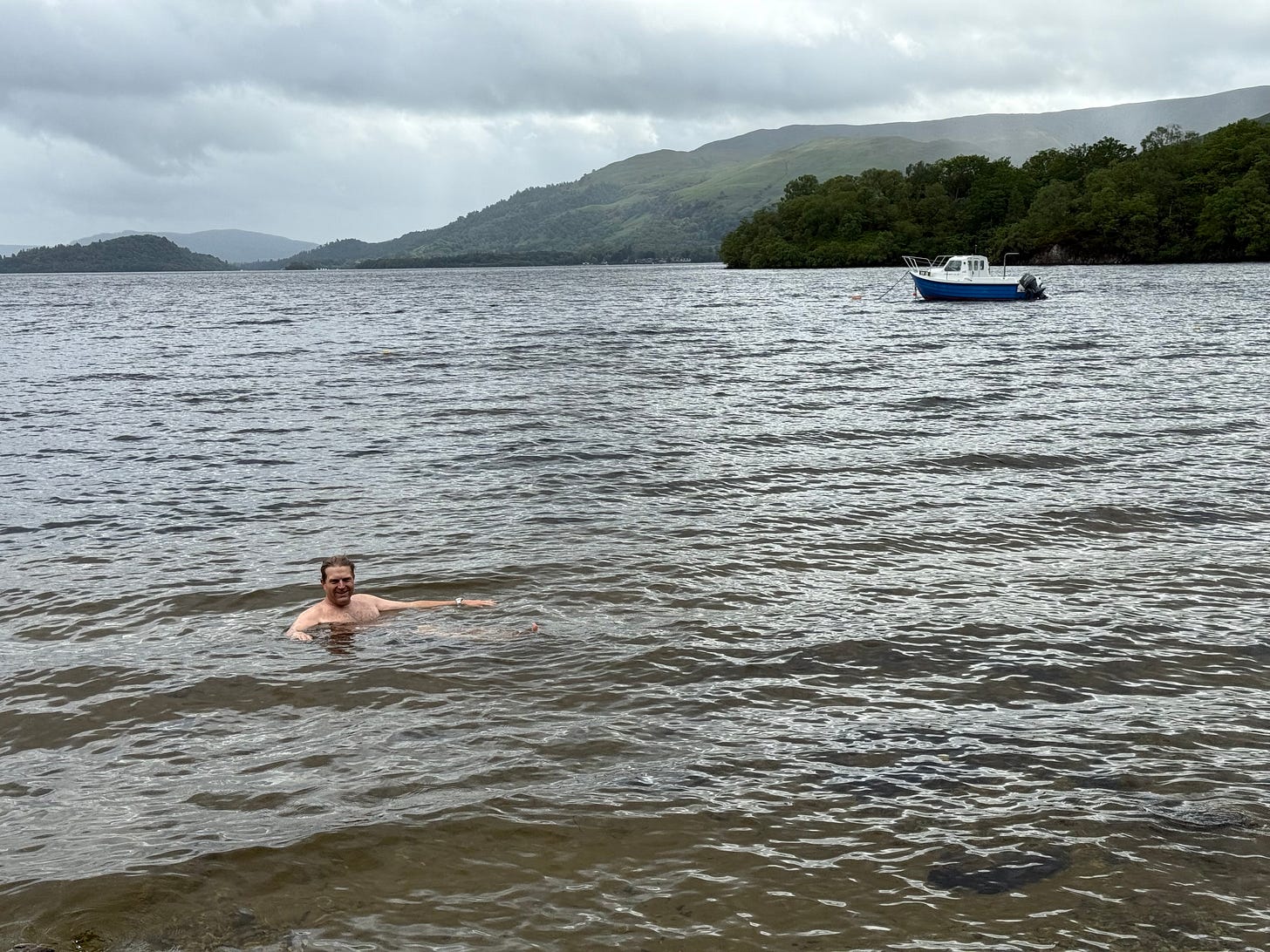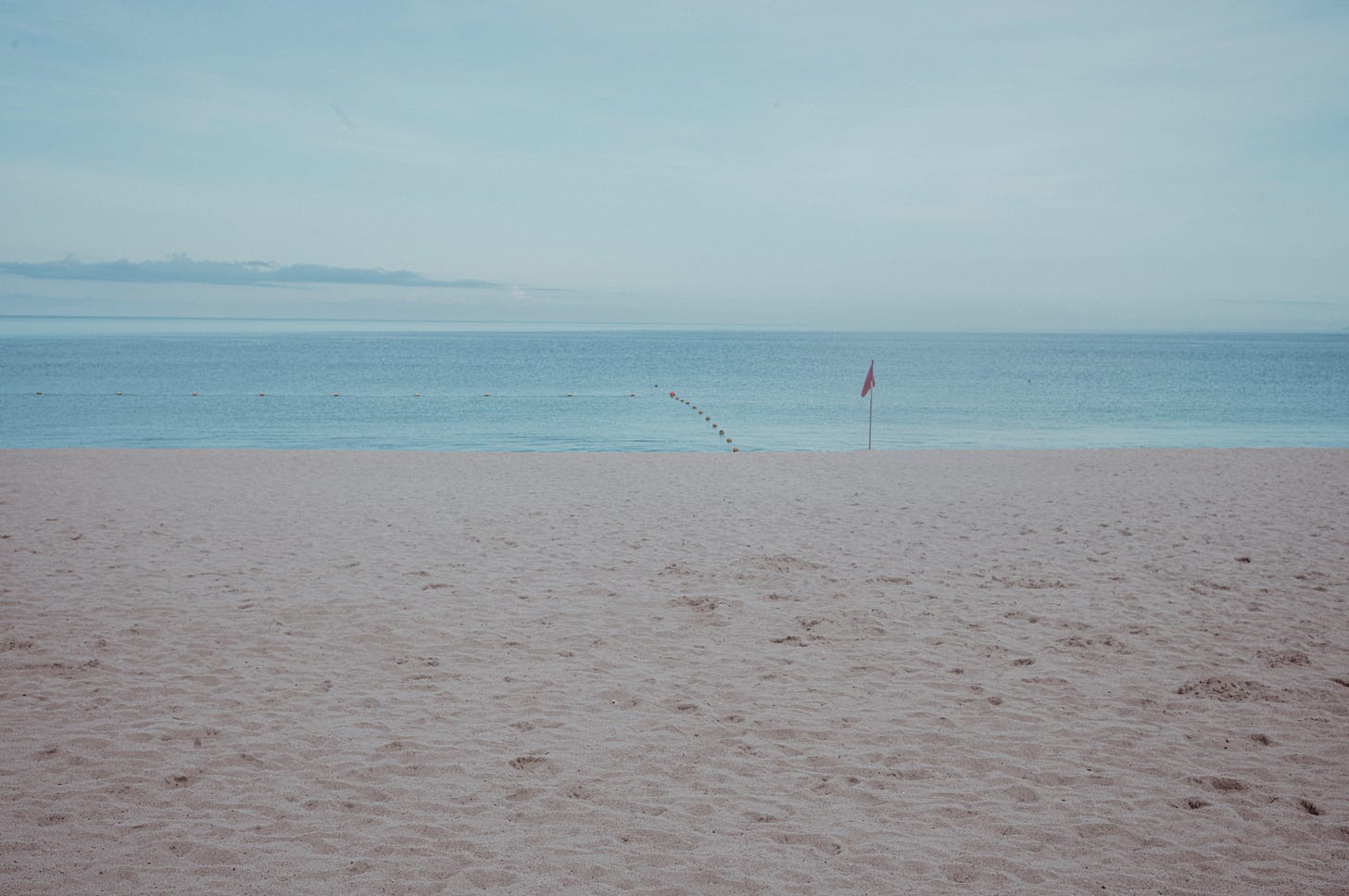Practice: Into the Wild Water
Why choosing rivers, lakes and oceans over pools makes us calmer, braver, and more alive—and what our kids learn when they see us do it.
On Tuesdays, I will post longer form musings about the core issues that have stolen our focus from us in my attempt to better understand how we got here and how we can get to a better place. But, on Thursdays, I'll keep it short and sweet, and talk about a practice that I am trying to implement in my life, why I chose to make that change, and the good and bad that I've noticed so far. Then, in a few months, I'll follow up on each of these changes and let you know how it's going.
There’s something special about swimming in natural water. The same rivers, lakes, and seas our ancestors used for hundreds of thousands of years—to bathe, to cool off, to connect with the world around them. Few things feel as healing and nurturing, for both mind and body, as slipping into a wild body of water.
Don’t get me wrong—I love the pool. It’s convenient. Comfortable. Clean(ish). Plus, there’s a snack bar that will deliver fries and a milkshake straight to my lounge chair.
But this past year, whenever I’ve had the chance, I’ve chosen the wild over the manufactured.
In Mexico, I ignored the resort’s red flag warnings (which just meant “no lifeguard”) and swam a mile across the bay each evening before dinner.
Hiking across Scotland, I twice plunged into the freezing waters of Loch Lomond (in nothing but my boxers).
As an EV driver, I’ve started planning charging stops around rivers. My favorites so far: Salida and Pagosa Springs, Colorado.
I keep a swimsuit and towel in the car at all times, just in case.
When I slowed down to notice how it made me feel, I realized something simple but profound:
When I swim in natural water, I don’t just feel cleaner—I feel calmer, braver, stronger, more alive.
And the science backs this up:
Circulation & Immunity: Cold water jolts your system, forcing blood vessels to contract and then expand. Research from Finland has shown that regular cold-water immersion improves circulation and strengthens immune response over time.
Endorphins & Mood: A 2018 study out of the University of Portsmouth found that open-water swimming reduced symptoms of depression and anxiety—likely due to the endorphin surge and dopamine release triggered by cold immersion.
Circadian Rhythm: Outdoor swims expose you to natural light, helping reset your internal clock. Studies show this improves sleep quality and daytime alertness.
Stress Reset: Immersion activates the parasympathetic nervous system (the “rest and digest” switch), lowering cortisol and easing mental tension.
Sensory Reconnection: Unlike the sterile sameness of a pool, natural water has texture, temperature shifts, smells, and sounds. That sensory richness pulls your attention out of screens and back into the present moment.
The research is clear: a plunge into cold, natural water isn’t just refreshing. It rewires your body for resilience and your mind for joy.
The practice is simple:
When you have a chance to swim in natural water—take it. And when you do, pause long enough to notice how it feels in your body.
Because once you really notice how something affects you, it gets a lot easier to keep choosing the things that make you feel alive. And as a parent, those choices matter twice: once for yourself, and once for the little eyes watching. When your kids see you choose courage over comfort, when they see you embrace the rawness of the natural world, they inherit a model for how to live—safe, curious, and unafraid.
The best way to push back against the forces that want to keep us glued to our screens is simple: choose aliveness, again and again.



